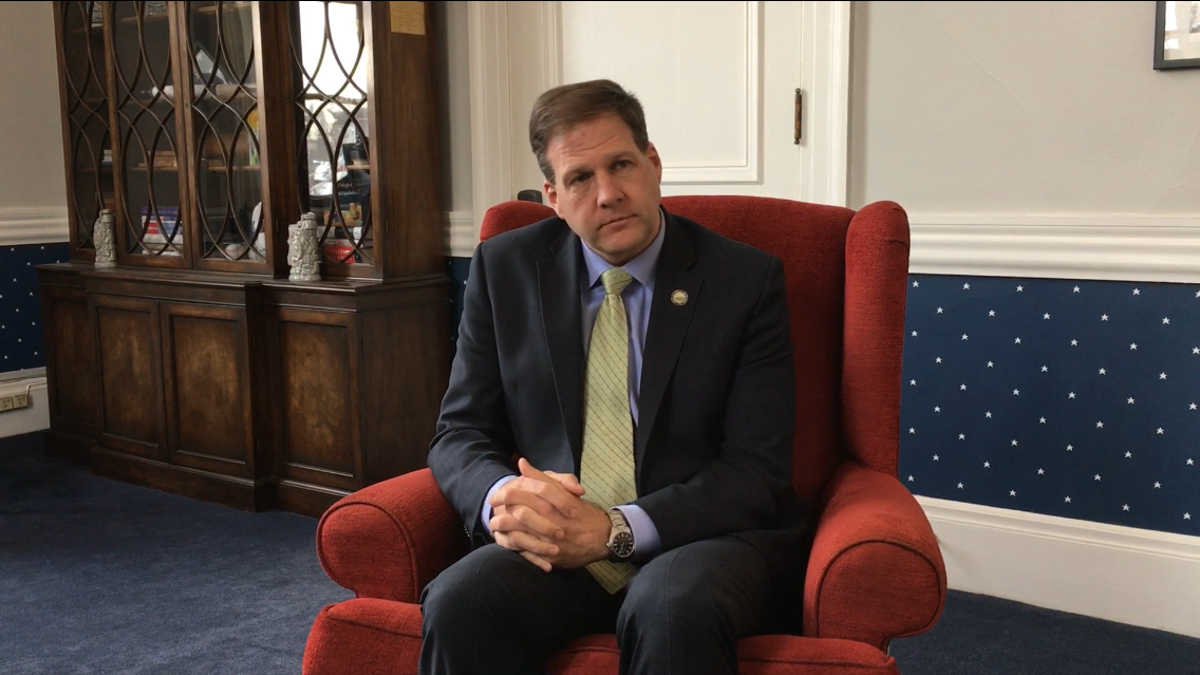Democrats push for mail-in voting amid COVID-19 pandemic
Trump 2020 campaign deputy communications director Erin Perrine weighs in.
Get all the latest news on coronavirus and more delivered daily to your inbox. Sign up here.
CONCORD, N.H. – The Republican governor of New Hampshire says he’ll allow widespread voting by absentee ballot in the state’s September primary and November general election if the coronavirus pandemic’s still a health threat later this year.
“Basically, if you feel more comfortable voting absentee because of the outbreak or your inability or nervousness about just appearing in person to vote, you can vote absentee and obtain an absentee ballot,” Gov. Chris Sununu said Thursday during a daily briefing on the state’s efforts to combat the coronavirus crisis.
POLITICAL BATTLE HEATS UP OVER PUSH TO INCREASE VOTING BY MAIL AMID CORONAVIRUS PANDEMIC
The popular governor who’s running this year for a third two-year term steering New Hampshire said that the state is also considering other ways to cast ballots, including “drive-up voting.”

New Hampshire Gov. Chris Sununu, in his office in the Statehouse in Concord, NH, in Jan. 2019
Longtime New Hampshire Secretary of State Bill Gardner told Fox News on Friday that the state’s current law would not have to be altered to allow for an increase in absentee balloting in the state primary and general election.
“If what exists right now exists in September and November,” Gardner said that no person would have to cast a ballot in person. “They would not have to go to the polls.”
“We are preparing for an election existing under current circumstances,” Gardner added. He said that could mean up to 90 percent of voters using the absentee ballot route.
The move by Sununu is a departure from his past stance opposing widespread absentee voting. Last year, he vetoed a bill passed by the Democratic-controlled state legislature that would have allowed all residents to vote by mail regardless of the reason.
Five states – Colorado, Hawaii, Oregon, Utah and Washington – currently vote entirely by mail. A majority of states now allow for no-excuse absentee balloting – but New Hampshire is one of nearly 20 states that require voters to provide a valid excuse to vote by absentee ballot.
THE LATEST FROM FOX NEWS ON THE 2020 PRESIDENTIAL CAMPAIGN
The position by Sununu – who’s a supporter of President Trump and has a strong working relationship with Vice President Pence – stands in vivid contrast to the fierce opposition by the president in recent days to allowing widespread voting by mail and absentee balloting.
The president’s turned up the volume in his opposition to expanding voting by mail and absentee ballots as a way to minimize health risks posed by voting in-person during the coronavirus pandemic.
"Mail-in voting is horrible. It's corrupt," the president argued during Tuesday’s daily Coronavirus Task Force press briefing at the White House.
Trump then argued that “you get thousands and thousands of people sitting in someone's living room signing ballots all over the place … I think that mail-in voting is a terrible thing.” The president didn’t offer evidence to back up his claim that voting by mail is rampant with fraud and abuse.
The president’s comments follow a similar attack on voting by mail he made last week, when he claimed that “a lot of people cheat with mail-in voting.”
The charges by the president are his latest claims -- disputed by critics and opponents -- regarding voter fraud, which he insists kept him from winning the popular vote in the 2016 presidential election. While Trump crushed Hillary Clinton in the Electoral College vote to win the White House, the Democratic nominee topped Trump by nearly 3 million votes in the national popular count.
One of the states where he claimed there was voter fraud was New Hampshire, a perennial general election battleground that Clinton won by less than 3,000 votes in the 2016 presidential contest.
The summer after the 2016 election, Sununu signed into law a bill that tightened voter eligibility restrictions and was passed by the state legislature.
That bill – which restricted out-of-state students attending college in New Hampshire from registering to vote unless they have a permanent state address or driver’s license – was struck down on Thursday by a Superior Court judge following a long legal battle.












































